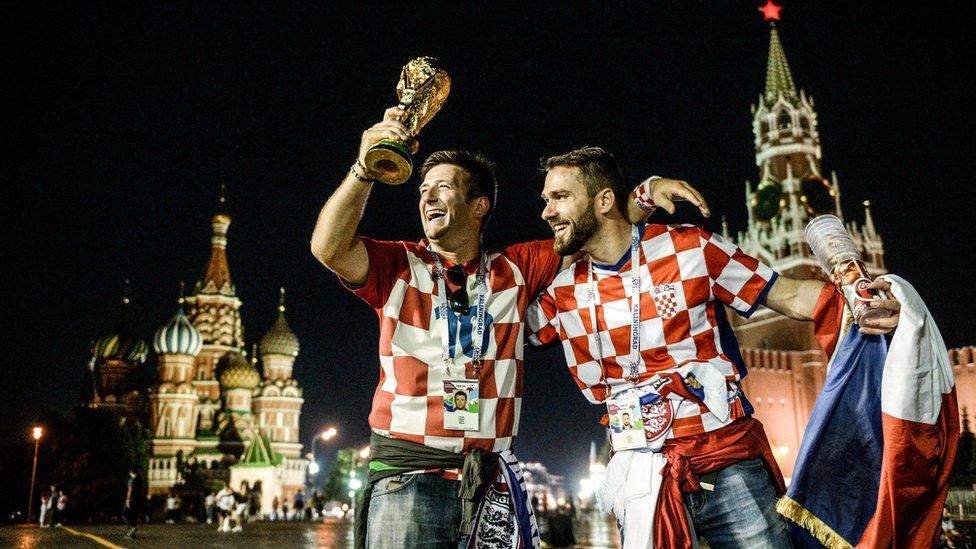World Cup 2018: How England can turn defeat into future success
- Published

Things that don't kill you are supposed to make you stronger - or at least that's what the likes of Kelly Clarkson and Kanye West have always told us.
And it's the big question being asked following England's semi-final defeat to Croatia on Wednesday night - will this experience spur these young Lions on to victory at Euro 2020, or the next World Cup?
"Defeat is almost a necessary component to success," says psychology lecturer Dr Philip Clarke, who despite being an Irishman had plenty of nice things to say about England when we spoke over the phone.
And if he's to be believed, football really could be coming home in the years to come.
Allow X content?
This article contains content provided by X. We ask for your permission before anything is loaded, as they may be using cookies and other technologies. You may want to read X’s cookie policy, external and privacy policy, external before accepting. To view this content choose ‘accept and continue’.

Well, that's if England adopt a few of Dr Clarke's suggestions.
As heartbroken as the nation was at the final whistle, it would've been ten times worse for the players.
But before they can move forward they have to re-live it.
"It's only ever a failure if you don't learn from it," says Dr Clarke.
Allow X content?
This article contains content provided by X. We ask for your permission before anything is loaded, as they may be using cookies and other technologies. You may want to read X’s cookie policy, external and privacy policy, external before accepting. To view this content choose ‘accept and continue’.

"As a unit they've got to reflect on it. Initially there's going to be those emotions of turmoil and upset, because it's an emotional thing to get to a World Cup semi-final and be so close to the pinnacle of what every player dreams about.
"But once they start looking at how they managed the situation - once they look at that and pick out ways in which they can improve, when they're there that next time it's not going to be as unknown to them."
And with top psychologist Pippa Grange on the FA's books, you can guarantee England will be reflecting on the tournament.
Do they have a 'growth mindset'?
Looking over their performances will definitely help, but only if they do so with the right mindset, according to Dr Clarke.
Allow X content?
This article contains content provided by X. We ask for your permission before anything is loaded, as they may be using cookies and other technologies. You may want to read X’s cookie policy, external and privacy policy, external before accepting. To view this content choose ‘accept and continue’.

Psychologists identify people as having a growth mindset - where they always see room for improvement - or a fixed mindset.
The second type "would look at it and go 'OK, we just weren't good enough. These are my abilities, there isn't really anything I can do here'," Dr Clarke says.
"Someone with a growth mindset will look at it and go 'OK great, we've had a great experience getting to where we are but what can we take from it? What can we learn from it?'
And it's not just the losses they should be paying attention to.
"It's about also learning from when you're doing well. That's where sustained success comes from," says Dr Clarke.
Don't fear failure
No player wants to be in the position England's stars found themselves in last night: Sat on the turf after 120 minutes, tears rolling down their cheeks.
Allow X content?
This article contains content provided by X. We ask for your permission before anything is loaded, as they may be using cookies and other technologies. You may want to read X’s cookie policy, external and privacy policy, external before accepting. To view this content choose ‘accept and continue’.

But they shouldn't let that memory hold them back. Quite the opposite.
"It's OK to have that emotion, that negative side, and understand what those feelings are like," says Dr Clarke.
"Nobody likes losing, but the way to use that is use it as a driver. Remember that feeling so when you're in those games in the future and you don't want to experience that again, you can push yourself a bit further.
"You can use it as a motivator rather than something to avoid."
And as professional sportsmen, Dr Clarke reckons this part won't be a problem.
"I guarantee they're going to want to put themselves back there - back in that position where they're going for another World Cup final," he says.

The heavy weight of World Cup expectation
That Belgium game? It's not a dead rubber
England play Belgium on Saturday in the third-place playoff - traditionally a game that nobody cares about and nobody wants to play in - or so some would argue.
England have lost the only third-place playoff they've been in, but Dr Clarke thinks it should be seen as an opportunity.
"A good thing in sport is, they always look towards the next game as a chance to move on from the last.
"People wonder what the point is of the third-place playoff, but actually it's quite a good opportunity for England to learn from what's happened against Croatia."
And with Belgium having beaten England once already this tournament - albeit with both playing second-string teams - now's a chance for them to really put down a statement of intent going forward.
Follow Newsbeat on Instagram, external, Facebook, external and Twitter, external.
Listen to Newsbeat live at 12:45 and 17:45 every weekday on BBC Radio 1 and 1Xtra - if you miss us you can listen back here.
- Attribution
- Published12 July 2018
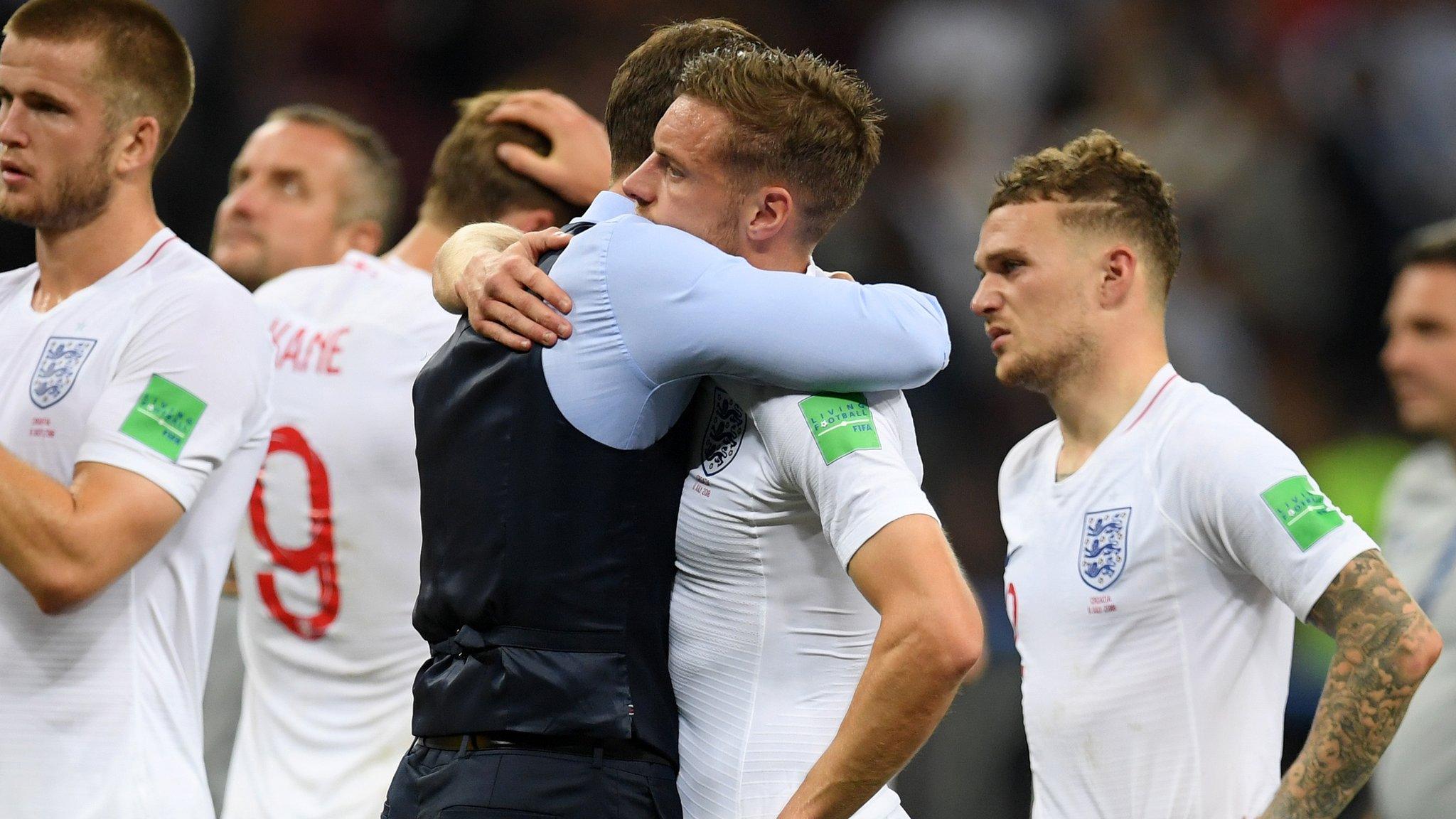
- Published11 July 2018
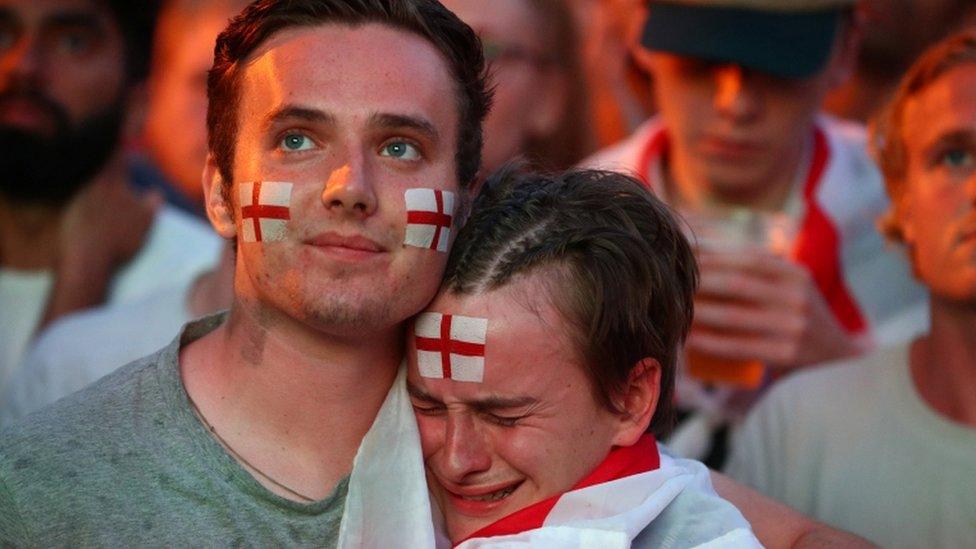
- Attribution
- Published11 July 2018
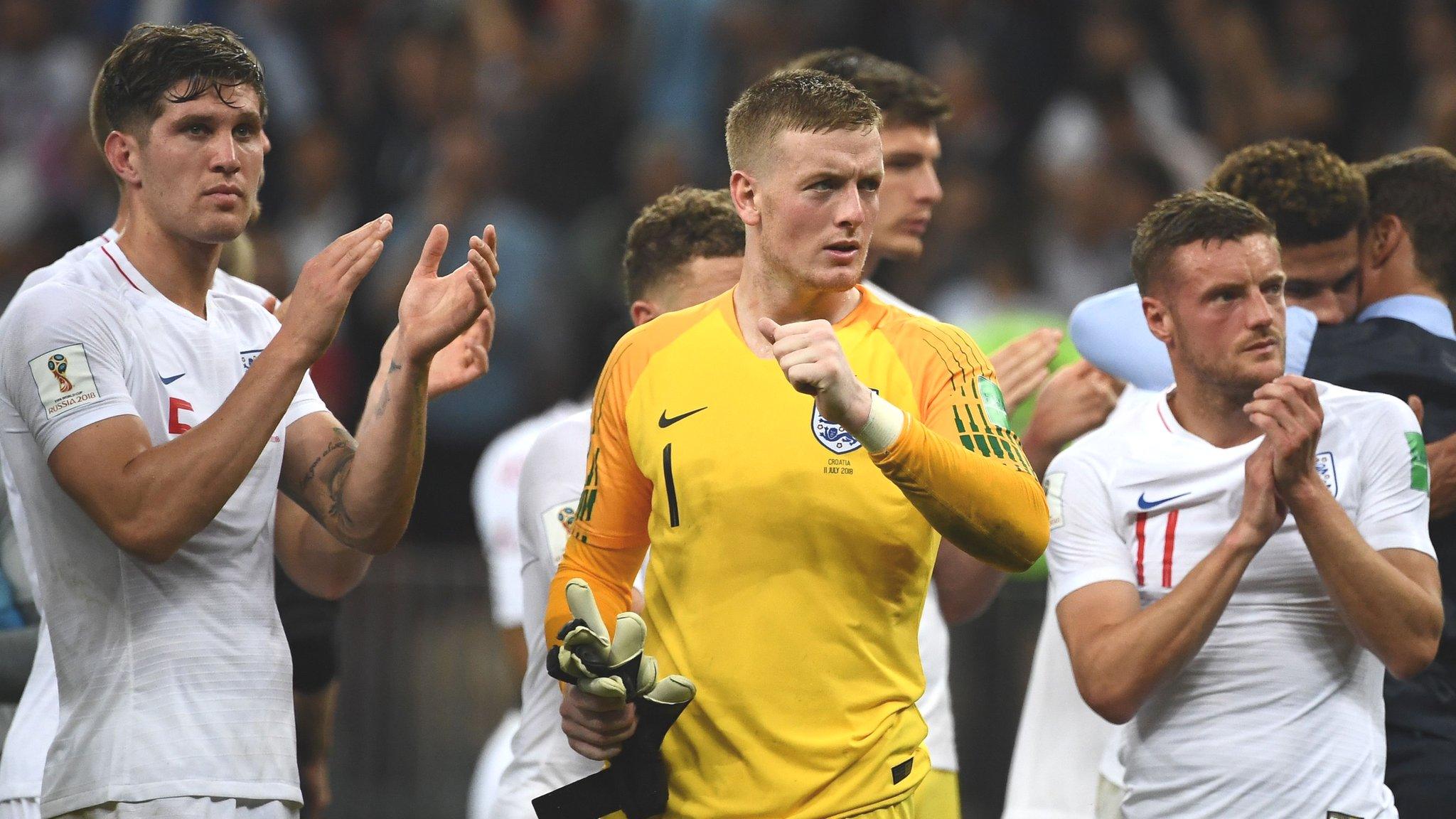
- Attribution
- Published12 July 2018
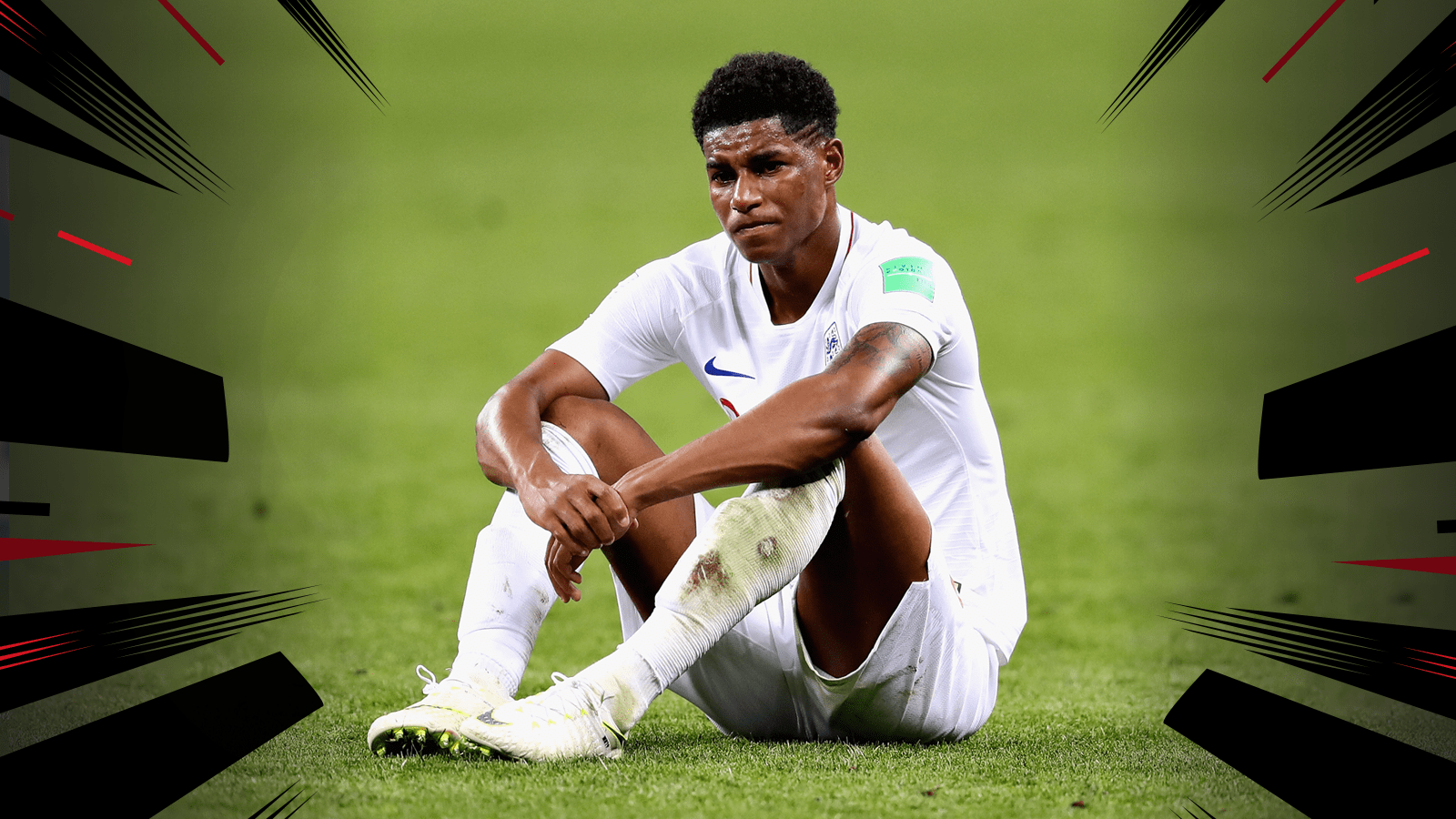
- Published12 July 2018
